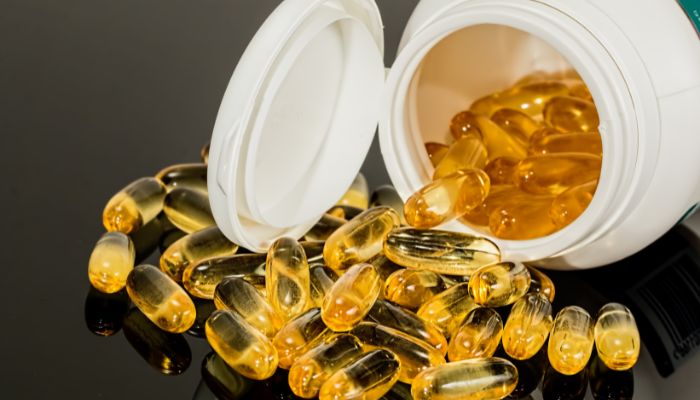Some fats are said to be “essential” for humans because the body cannot synthesize them. These include fatty acids omega-3 are known for their beneficial effects on cardiovascular health.

To consume them, it is not necessary to resort to dietary supplements: some foods contain enough.
Foods to Replenish Your Body’s Omega-3
Canola oil
Rapeseed (canola) oil is a source of alpha-linolenic acid (ALA), a short-chain fatty acid in the family omega-3. Alpha-linolenic acid cannot be produced by the body: it is called “essential” because it must necessarily be supplied through the diet.
In the body, short-chain fatty acids can be converted into long-chain fatty acids. These are beneficial for cardiovascular health.
Nuts
The walnut has a particularly high content of polyunsaturated fatty acids, over 70% of its total lipids. Almost one-fifth of these acids are fatty acids omega-3 short-chain essentials.
It is best to buy walnuts in their shells: the unsaturated fats in walnuts sold without shells oxidize more easily.
Mackerel
Mackerel is an excellent source of omega-3 long-chain (EPA and DHA).
These are the most beneficial for the body. They are known to reduce blood pressure, triglycerides, and blood clots, reducing the risk of cardiovascular disease.
Mackerel is one of the fish richest in EPA and DHA. A 100g serving of mackerel provides about 1.2g, which is more than double the daily recommendation.
Hemp oil
Hemp seeds are a unique source of omega-3. Obviously, the food version does not contain THC, a highly psychotropic molecule.
Hemp oil contains not only the “short chain” found in other vegetable oils, but also the SDA (medium chain). These are assimilated much more easily by the body. It can be found for sale in organic or natural stores at a very high price.
Chia seeds
Chia seeds are naturally rich in dietary fiber and “good fats.” They contain 15 to 17% of omega-3 in the form of alpha-linolenic acid (ALA).
They also contain 5 to 8% of gamma-linolenic acid (GLA), an omega-6 that is difficult for the body to synthesize. On the other hand, fatty acids omega-3 long-chain are not part of its composition.
They can be eaten as is, crushed into recipes or sprinkled on dishes.
Linseed oil
Flaxseed oil contains a high amount of alpha-linolenic acid (ALA), a fatty acid omega-3 short-chain. Professionals advise taking one tablespoon a day to reduce the risk of cardiovascular disease.
Flaxseed oil spoils very easily, so keep it in the refrigerator and consume it quickly once the container is opened. Buy small quantities at a time and choose opaque containers.
Shrimp
Like fatty fish, shrimp contain EPA and DHA, two long-chain polyunsaturated fatty acids from the omega-3.
A 75g serving of shrimp provides around 300mg of EPA and DHA.
Sardines
Preserved in virgin olive oil, sardines are a delicacy. Their high fat content makes them one of the best sources of omega-3 long-chain. Like most oily fish, it contains EPA and DHA. A 100 g serving of sardines provides about 1 g.
To fully benefit from the virtues attributed to fatty acids omega-3, avoid cooking the fish for too long.09

